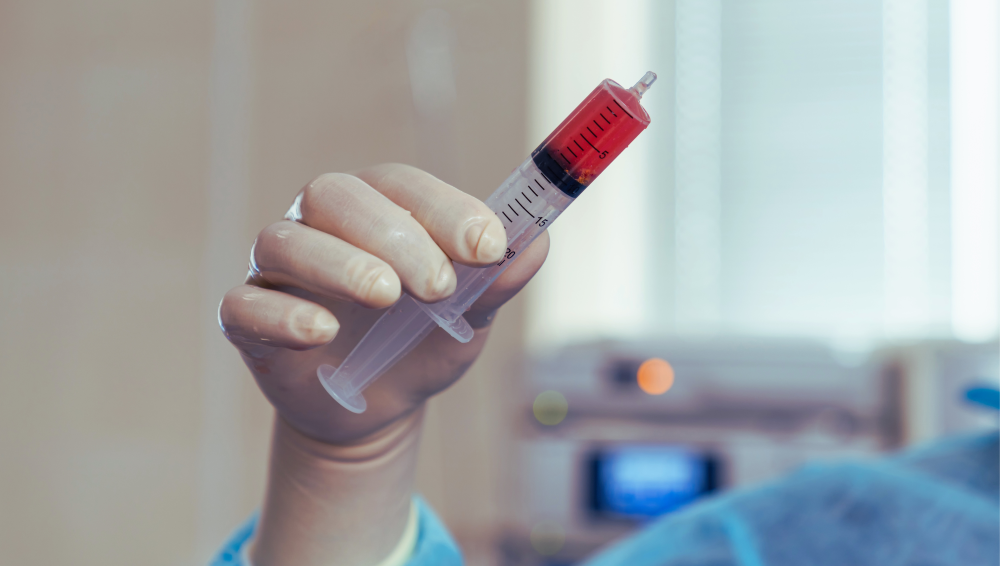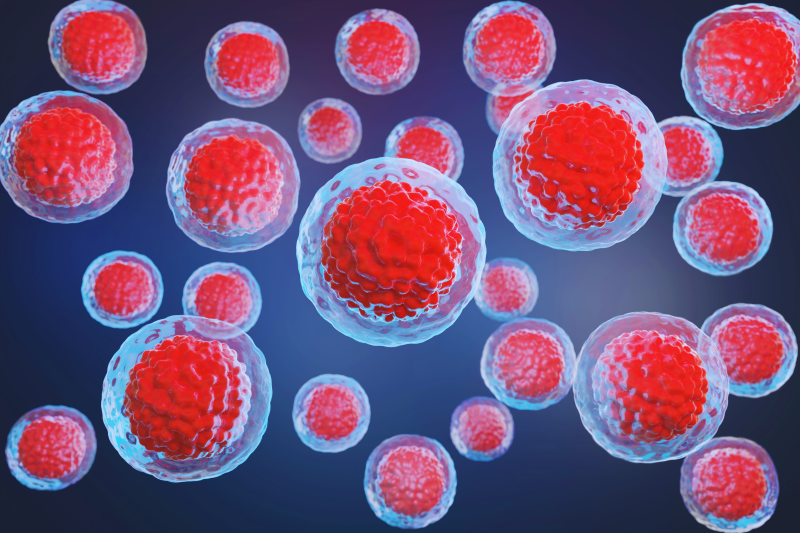
Preparation and implementation
Before a blood stem cell transplant, all existing tumor cells must be destroyed if possible. This is usually done by means of high-dose chemotherapy and, if necessary, radiotherapy. After this so-called conditioning, the stem cells are removed from the blood or bone marrow of the patient or the donor and transplanted by transfusion.
Opportunities and risks
The high-dose chemotherapy (conditioning therapy) that precedes blood stem cell transplantation is associated with severe side effects. Conditioning suppresses the recipient's immune system so that the transplanted stem cells are not rejected. With autologous transplantation, the risk of the cells being rejected after transplantation is very low. For people with leukemia in particular, blood stem cell transplantation is often the only chance of a cure.
Which type of blood stem cell transplant is used therefore depends on many factors. For example: What type of disease is involved? Is there a suitable unrelated donor? How severe are the possible side effects? Last but not least, the age and general state of health of those affected also play a decisive role.
Telephone cancer counseling
You can also obtain further general information on the subject of cancer therapy via the free BürgerTelefonKrebs: 0800 85 100 80.
Our staff will be happy to answer your questions and help you!



